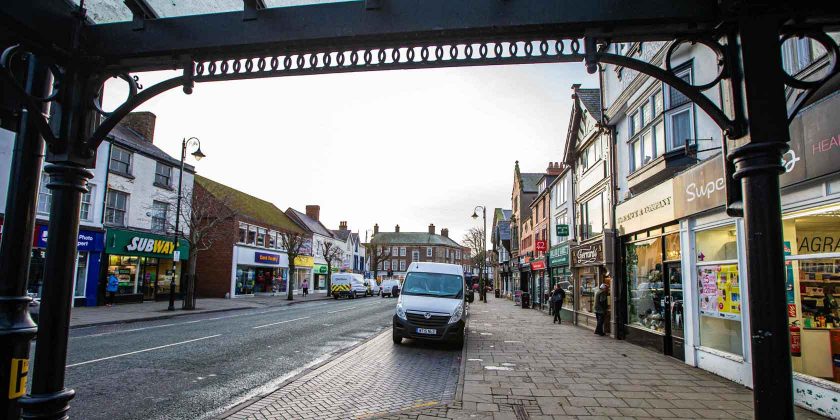Poor transport links and unfair business rates stalling town centre regeneration

Poor transport links and availability of car parking is affecting footfall in town centres, to the detriment of local businesses, a Senedd Committee has heard.
During an inquiry looking at how Town Centre Regeneration is working across Wales, the Senedd’s Public Accounts and Public Administration Committee heard that the lack of simple and integrated transport systems are preventing people from visiting town centres more often, preferring to use out-of-town locations instead.
It also heard how the current non-domestic rates regime disincentivises investment in towns, preventing the redevelopment of empty properties and puts additional pressures on small businesses already struggling with rising energy costs.
The Committee’s report published today, Thursday 25 January 2024, includes 8 recommendations to Welsh Government, calling on it to do more to accelerate the pace of regeneration and better support local stakeholders to make big decisions that are right for their areas.
Chair of the Senedd Public Accounts and Public Administration Committee, Mark Isherwood MS, says:
“Like other nations, Wales’ towns have been changed immeasurably by the pandemic and the increased prevalence of online shopping. It is clear that the high street’s traditional role as the hub of retail is no longer sustainable and during our inquiry we heard about several innovative projects, at a local level, that are giving town centres a new purpose.
“But these innovations will only be successful if all stakeholders are empowered to make big decisions that are right for their area, with reassurance at a national level that adequate resources and expertise will be made available at all levels. Welsh Government need to provide the national solutions to the local issues and support our communities to achieve the regeneration our town centres so badly need.”
During the inquiry, the Committee visited Mold, Wrexham, Morriston and Carmarthen to meet with local representatives and learn about the innovative ways they are trying to bring about change to their high streets.
“We were encouraged and impressed by our visits to Mold, Wrexham, Morriston and Carmarthen. It was a pleasure to hear about the positive work being done, but sobering to hear about the challenges that each location was also facing. Our report today highlights these barriers,” added Mark Isherwood MS.
the Committee Chair visited Mold for a meeting with Mold Town Council officials. The purpose was to understand better the role of town councils in local-level regeneration.
The Chair and officials toured the Bailey Hill project in the town, which underwent comprehensive restoration after securing a £1.8m grant from the National Heritage Fund. Flintshire County Council owns the site, leasing it to the Town Council. Part of the development’s funding comes from revenue from a privately let flat on the building’s first floor. The ground floor serves as a community asset for local residents.
Management of the site involves a tripartite arrangement between the County Council, Town Council, and a volunteer group, the Friends of Bailey Hill. The Town Council has launched a new website, named Totally Mold, to promote the independent businesses throughout the town. The Committee learned about the Town Council’s proactive strategy in organizing press launches for new businesses in the town, with the Mayor actively publicizing these events. The town boasts a low vacancy rate of about 6.5%.
Local shopkeepers praised the partnership between the town’s businesses and the Town Council. Businesses identified key challenges, notably in business rates and energy bills. One business owner explained facing significant pressures due to business rates, as they occupied a large space with low turnover. However, having occupied this space for many years, they were reluctant to give it up.
Spotted something? Got a story? Email: [email protected]
Latest News
